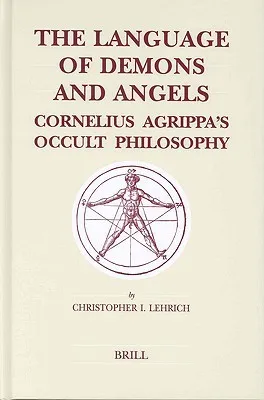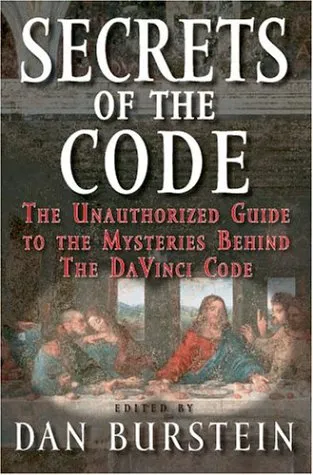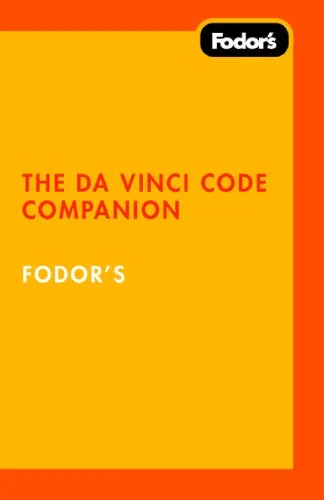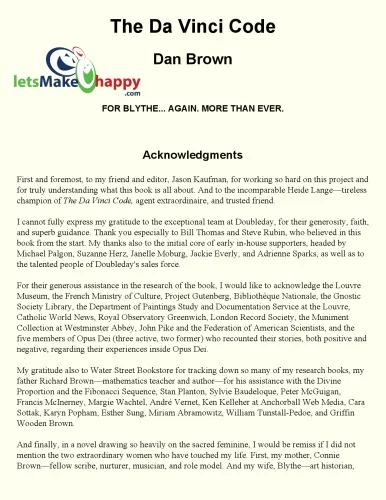The Language of Demons and Angels: Cornelius Agrippa's Occult Philosophy
4.0
بر اساس نظر کاربران

شما میتونید سوالاتتون در باره کتاب رو از هوش مصنوعیش بعد از ورود بپرسید
هر دانلود یا پرسش از هوش مصنوعی 2 امتیاز لازم دارد، برای بدست آوردن امتیاز رایگان، به صفحه ی راهنمای امتیازات سر بزنید و یک سری کار ارزشمند انجام بدینکتاب های مرتبط:
معرفی کتاب 'The Language of Demons and Angels: Cornelius Agrippa's Occult Philosophy'
کتاب 'The Language of Demons and Angels: Cornelius Agrippa's Occult Philosophy' اثر کریستوفر آی. لریش به بررسی فلسفه مخفی کورنلیوس آگریپا میپردازد و به دنیای پیچیده زبان، نشانهها و مفاهیم در فلسفه او وارد میشود. این کتاب به طور خاص بر تعاملات میان نیروهای عرفانی و زبانی تمرکز دارد و چگونگی تجربه و هدایت این نیروها از طریق زبان را مورد مطالعه قرار میدهد.
خلاصهای جامع از کتاب
کتاب به دو بخش اصلی تقسیم میشود. بخش اول به بررسی زندگی و زمانه کورنلیوس آگریپا اختصاص دارد که چگونه این شخصیت برجسته، دانش جادوی باطنی و فلسفه را در دوره رنسانس اروپایی تفسیر و توسعه داد. بخش دوم به تحلیل تفصیلی مفاهیم بنیادی و زبانهایی که آگریپا برای برقراری ارتباط با نیروهای فراطبیعی، از جمله demons و angels استفاده میکرد، میپردازد.
نکات کلیدی
- فلسفه آگریپا، به ویژه در زمینه جادو و بکارگیری قدرتهای زبانی، با تمرکز بر ارتباط انسانها با فراطبیعی و نیروهای ماوراءالطبیعه.
- تحلیل روابط میان زبانهای عرفانی و تاثیرات آنها بر روانشناسی و تجربیات انسانی.
- ارائه راهکارهایی برای دسترسی به دانش و بیداری از طریق بررسی زبان و نشانههای عرفانی.
نقل قولهای مشهور از کتاب
"زبان نه تنها ابزار ارتباط است، بلکه پلی است برای انتقال عرفانیات از سطحی به سطح دیگر."
"درک آگریپا از جادو، نه به عنوان دستیابی به ناممکن، بلکه به عنوان مهارتی بود که میتوان به وسیله آن جهان مخفی را شناخت."
چرا این کتاب مهم است
این کتاب به عنوان یک منبع منحصر به فرد برای دانشجویان و علاقهمندان به جادو و فلسفه باطنی، چگونگی تاثیرگذاری زبان بر فهم و ادراک ما از جهان را تبیین میکند. در دنیایی که ارتباطات و زبان به طور فزایندهای در مرکز اندیشه و عمل انسان قرار دارد، درک نقش زبانهای عرفانی و مخفی اهمیت بیشتری مییابد.
از نظر تاریخی، این کتاب به بازشناسی و پذیرش دوباره از اندیشههای رنسانسی آگریپا کمک میکند که تاثیرات گستردهای بر فلسفه و علم مدرن داشتهاند. مطالعه این کتاب به خواننده امکان میدهد تا به جهانی از دانش و رمز و رازها وارد شود که به سادگی در متنهای دیگر قابل دستیابی نیستند.
Introduction to 'The Language of Demons and Angels: Cornelius Agrippa's Occult Philosophy'
Welcome to an exploration of one of the most intriguing intersections of language, mysticism, and philosophy: 'The Language of Demons and Angels' by Cornelius Agrippa. This book delves deep into the intricate lattice of occultism as formulated by the renowned Renaissance thinker, Heinrich Cornelius Agrippa von Nettesheim. It is an insightful journey into the profound and oftentimes enigmatic world of occult philosophy and the role played by language in understanding the mystical and supernatural.
A Detailed Summary of the Book
Cornelius Agrippa, a polymath of the Renaissance, is celebrated for his influential works in theological and occult studies. 'The Language of Demons and Angels' meticulously examines Agrippa's seminal text, 'De Occulta Philosophia,' providing a deeper understanding of his theories concerning the occult sciences. Using a philological approach, Agrippa discusses the language through which humans can communicate with spiritual entities—both celestial and infernal. His work proposes that language is not merely a tool for mundane communication but a crucial component in rituals and invocations, enabling interactions with supernatural forces.
Agrippa's philosophical treatise further explores the nature of angels and demons, the hierarchy within the celestial and infernal realms, and their respective languages. The book also addresses the significance of magical symbols and how these signs are employed within rituals aimed at summoning and commanding spiritual beings. This complex examination is rooted in medieval and Renaissance esoteric traditions, presenting a synthesis of Agrippa's religious beliefs, scientific inquiries, and mystical speculations.
Key Takeaways
- Understanding the fundamental role of language in the practice of magic and communication with non-human entities.
- Insight into the dynamics between the spiritual and physical realms as perceived in Renaissance occult philosophy.
- Agrippa's elaboration on the significance of astronomical and astrological knowledge in the practice of magic.
- An exploration of the ethical and moral considerations within the context of invoking supernatural beings.
- Recognition of the historical and cultural influences that shaped Renaissance esoteric traditions.
Famous Quotes from the Book
“Magic is a faculty of wonderful virtue, full of most high mysteries, containing the profound contemplation of most secret things.”
“The human soul, if it wills and is satisfied, is so joined to and knit to the uniting force of the gods that it becomes a singular virtue of them.”
Why This Book Matters
The exploration of demonic and angelic languages as presented by Agrippa is not merely a historical curiosity; it serves as a potent reminder of the depth and breadth of human intellectual pursuits. 'The Language of Demons and Angels' offers valuable insights into the Renaissance worldview, characterized by a blend of mysticism, science, and theology. It captures the transitional spirit of a period that sought to reconcile ancient knowledge with emerging scientific inquiry.
Agrippa’s work is pivotal for anyone interested in the history of magic, the development of philosophical thought, and the lasting impact of esoteric traditions on modern spiritual and religious practices. By examining the ways in which language functions as a nexus between worlds, the book challenges readers to reflect on the power of words and symbols in shaping reality and consciousness.
دانلود رایگان مستقیم
شما میتونید سوالاتتون در باره کتاب رو از هوش مصنوعیش بعد از ورود بپرسید
دسترسی به کتابها از طریق پلتفرمهای قانونی و کتابخانههای عمومی نه تنها از حقوق نویسندگان و ناشران حمایت میکند، بلکه به پایداری فرهنگ کتابخوانی نیز کمک میرساند. پیش از دانلود، لحظهای به بررسی این گزینهها فکر کنید.
این کتاب رو در پلتفرم های دیگه ببینید
WorldCat به شما کمک میکنه تا کتاب ها رو در کتابخانه های سراسر دنیا پیدا کنید
امتیازها، نظرات تخصصی و صحبت ها درباره کتاب را در Goodreads ببینید
کتابهای کمیاب یا دست دوم را در AbeBooks پیدا کنید و بخرید
سوالات پرسیده شده از این کتاب
1563
بازدید4.0
امتیاز0
نظر98%
رضایتنظرات:
4.0
بر اساس 0 نظر کاربران
Questions & Answers
Ask questions about this book or help others by answering
No questions yet. Be the first to ask!








